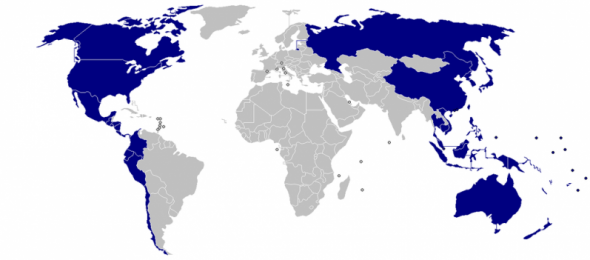A group of lawmakers led by Massachusetts Senator Elizabeth Warren have recently expressed concerns over a proposed Trans-Pacific trade partnership between the United States and 11 other Pacific Rim nations. According to critics of the proposed deal that includes Australia, Brunei, Canada, Chile, Japan, Malaysia, Mexico, New Zealand, Peru, Singapore, and Vietnam, the language in an investor-state dispute settlement (“ISDS”) provision included in the proposed trade pact could undermine U.S. sovereignty.
The ISDS framework proposed as part of the Pacific trade agreement deal is currently used by the World Bank. It was apparently established in an effort to encourage foreign investment by providing safeguards against discriminatory treatment such as property seizure or trade agreement violations. Senator Warren and others claim the provision may instead offer a venue for foreign businesses to challenge American laws. In addition, Warren argues an efficient ISDS arbitral process may encourage U.S. companies to move their headquarters or other business transactions offshore.
Some critics of the proposed measure claim ISDS arbitral proceedings are merely “rigged pseudocourts” designed to favor business interests. Others argue the arbitral procedure is essentially a subsidy created in an effort to mitigate the risks associated with conducting business overseas. Despite that the U.S. has never lost an ISDS case, Warren claims it is only a matter of time before this occurs. Susan Franck, Professor of Law at Washington and Lee University School of Law, states that governments typically prevail in ISDS proceedings at about the same rate as in traditional litigation.
According to the White House, the ISDS procedure is preferable to resolving international commercial disputes through so-called “gunboat diplomacy.” The current administration is reportedly working to ensure that American laws are not affected by the proposed Pacific trade agreement. It is also interesting to note that the most vocal critics of the proposed Pacific trade measure are primarily liberal and libertarian. Despite this, many conservative lawmakers are purportedly opposed to the trade policy.
Because of the potential effect on state regulations and laws, the National Conference of State Legislatures is reportedly against the proposed Pacific trade pact. Still, many believe that arbitration through the international commercial tribunal is more likely than the court system to ensure fairness across a dozen different national economies.
We would love to hear your thoughts.
Photo credit: Foter / CC BY-SA














